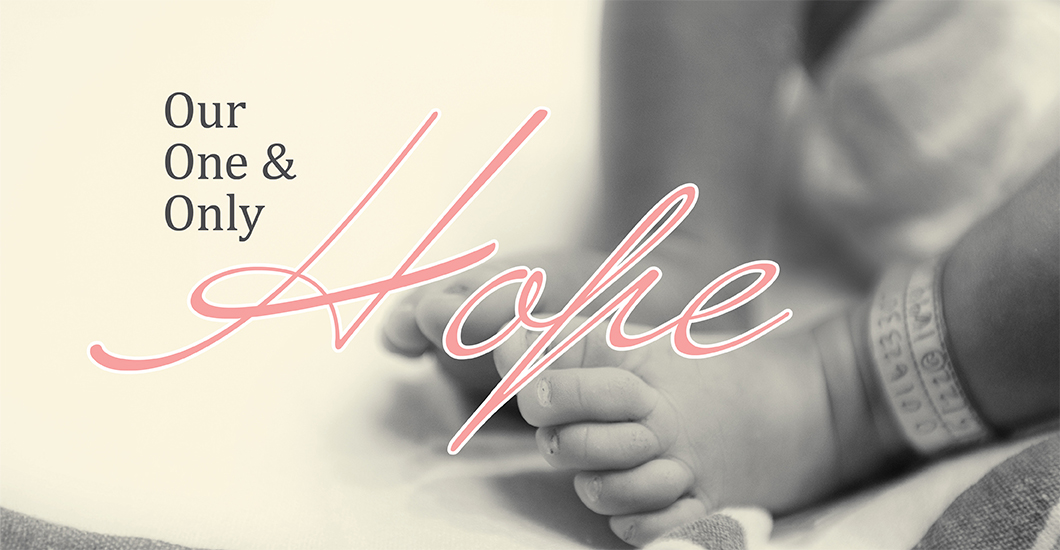Home/Evangelize/Article
Trending Articles
How to Pray
We all wrestle with God at one point or another, but when do we really attain peace?
Recently, a struggling friend told me: “I do not even know what to pray for.” She wanted to pray but was growing weary of asking for something that was not coming. I immediately thought of Saint Peter Julian Eymard’s Eucharistic Way of Prayer. He invites us to model our prayer time after the four ends of the Mass: Adoration, Thanksgiving, Atonement, and Petition.
A Better Way
Prayer is more than asking, yet there are times when our needs and worries about our loved ones are so pressing that we do nothing but ask, ask, plead, and then ask some more. We might say: “Jesus, I leave this in your hands,” but 30 seconds later, we grab it right out of His hands to explain why we need it again. We worry, fret, and lose sleep. We don’t stop asking long enough to hear what God might be trying to whisper to our weary hearts. We go around like this for a while, and God lets us. He waits for us to wear ourselves out, to realize that we are not asking Him to help us, but we are trying to tell Him how we think He needs to help us. When we grow tired of wrestling and finally surrender, we learn a better way to pray.
In his letter to the Philippians, Saint Paul instructs us on how we should approach our petitions to God: “Have no anxiety at all, but in everything, by prayer and petition, with thanksgiving, make your requests known to God. Then the peace of God that surpasses all understanding will guard your hearts and minds in Christ Jesus.” (4:6-7)
Combat the Lies
Why do we worry? Why do we get anxious? Because, like Saint Peter, who stopped looking at Jesus and began to sink (Matthew 14:22-33), we too lose sight of the Truth and choose to listen to the lies. At the root of every anxious thought lies a big lie—that God will not take care of me, that whatever problem worries me now is bigger than God, that God will abandon me and forget me…that I don’t have a loving Father after all.
How do we combat these lies? With the TRUTH.
“We must simplify the work of our mind by a simple and calm view of God’s truths,” reminds St. Peter Julian Eymard.
What is the truth? I like Saint Mother Teresa’s answer: “Humility is truth.” The Catechism tells us that “humility is the foundation of prayer.” Prayer is raising our hearts and minds to God. It is a conversation, a relationship. I can’t be in a relationship with someone I do not know. When we begin our prayer with humility, we acknowledge the truth of Who God is and of who we are. We recognize that, on our own, we are nothing but sin and misery but that God has made us his children and that in Him, we can do all things (Philippians 4:13).
It is that humility, that truth, that brings us to first adoration, then thanksgiving, then repentance, and finally to petition. It is the natural progression of one who is completely dependent on God. So when we don’t know what to say to God, let us bless Him and praise His name. Let us think of all the blessings and thank Him for all He has done for us. This will help us trust that this same God, who has always been with us, is still here today and is always for us through good times and difficult times.

Ivonne J. Hernandez is a lay Associate of the Blessed Sacrament, president of Elisheba House, and author of The Rosary: Eucharistic Meditations. She writes regularly for many Catholic blogs and lives in Florida with her husband and two of her young adult sons.
Related Articles
Wherever you are and whatever you do, you are irrevocably called to this great mission in life. In the mid-eighties, Australian director Peter Weir made his first American film, a successful thriller, Witness, which starred Harrison Ford. The movie is about a young boy who sees the murder of an undercover police officer by corrupt co-workers, and he’s hidden away in an Amish community for protection. As the story unfolds, he recalls what happened by putting the pieces together and then, he tells the Ford character named John Book (note the Gospel symbolism). The movie contains the marks of a witness: one sees, recalls, and tells. Circling Back Jesus showed Himself to His innermost circle so that the truth of His Resurrection would reach everyone through them. He opened the minds of His disciples to the mystery of His Death and Resurrection saying: “You are witness to these things” (Luke 24:48). Having seen Him with their own eyes, the Apostles could not remain silent about this incredible experience. What’s true for the Apostles is also true for us because we are members of the Church, the mystical Body of Christ. Jesus commissioned his disciples to “Go, therefore, and make disciples of all nations, baptizing them in the name of the Father, and of the Son, and of the Holy Spirit.” (Matthew 28:19) As missionary disciples, we testify that Jesus is alive. The only way we can enthusiastically and steadfastly embrace this Mission is to see through the eyes of faith that Jesus is Risen, that He is alive, and present within and among us. That’s what a witness does. Circling back, how does one ‘see’ the Risen Christ? Jesus instructed us: “Unless a grain of wheat falls into the earth and dies, it remains alone; but if it dies, it bears much fruit.” (John 12:23-24) Put simply, if we really want to ‘see’ Jesus, if we want to know Him deeply and personally, and if we want to understand Him, we have to look to the grain of wheat that dies in the soil: in other words, we have to look to the Cross. The Sign of the Cross marks a radical shift from self-reference (Ego-drama) to being Christ-centered (Theo-drama). In itself, the Cross can only express love, service, and unreserved self-giving. It is only through sacrificial giving of the self for the praise and glory of God and the good of others that we can see Christ and enter Trinitarian Love. Only in this way can we be grafted onto the ‘Tree of Life’ and truly ‘see’ Jesus. Jesus is Life itself. And we are hard-wired to seek Life because we are made in God’s image. That’s why we’re drawn to Jesus—to ‘see’ Jesus, meet Him, know Him, and fall in love with Him. That’s the only way we can be effective witnesses to the Risen Christ. The Hidden Seed We too must respond with the witness of a life that is given in service, a life that is patterned after the Way of Jesus, which is a life of sacrificial self-giving for the good of others, recalling that the Lord came to us as servants. Practically speaking, how can we live such a radical life? Jesus told His disciples: “You will receive power when the Holy Spirit has come upon you; and you will be My witnesses.” (Acts 1:8) The Holy Spirit, just as He did at the first Pentecost, frees our hearts chained by fear. He overcomes our resistance to do our Father’s will, and He empowers us to give witness that Jesus is Risen, He is alive and He is present now and forever! How does the Holy Spirit do this? By renewing our hearts, pardoning our sins, and infusing us with the seven gifts that enable us to follow the Way of Jesus. It is only through the Cross of the hidden seed, ready to die, that we can truly ‘see’ Jesus and therefore give witness to Him. It is only through this intertwining of death and life that we can experience the joy and fruitfulness of a love that flows from the heart of the Risen Christ. It is only through the power of the Spirit that we reach the fullness of the Life He gifted us with. So, as we celebrate Pentecost, let us resolve by the gift of Faith to be witnesses of the Risen Lord and bring the Paschal gifts of joy and peace to the people we encounter. Alleluia!
By: Deacon Jim McFadden
MoreIf I hadn't gone through that darkness, I wouldn't be where I am today. My parents really wanted to have a family, but my mom wasn't able to get pregnant until she was 40. I was their miracle baby, born on her birthday, exactly one year after she completed a special Novena in petition for a child. I was gifted with a baby brother one year later. My family was nominally Catholic; we would go to Sunday Mass and receive the Sacraments, but there was nothing more. When I was about 11 or 12, my parents turned away from the Church and my faith life took an incredibly long pause. Writhing Agony Teenage years were packed with pressure, a lot of which I put on myself. I’d compare myself to other girls; I wasn't happy with my appearance. I was highly self-conscious and anxious. Though I excelled academically, I had a difficult time in school because I was very ambitious. I wanted to get ahead—show people that I could be successful and intelligent. We didn't have much money as a family, so I figured that studying well and getting a good job was going to solve it all. Instead, I got sadder and sadder. I would go for sports and celebrations, but I would wake up the next day and feel all empty. I had a few good friends, but they too had their own struggles. I remember trying to support them and ending up questioning the why of all the suffering around me. I was lost, and this sadness made me close-up and curl into myself. When I was about 15, I fell into the habit of self-harm; as I later realized, at that age, I didn't have the maturity or the ability to speak about what I was feeling. As pressure intensified, I gave in to suicidal thoughts, multiple times. During one hospitalization incident, one of the doctors saw me in such agony and said: “Do you believe in God? Do you believe in something after death?” I thought it was the strangest question to ask, but that night, I remembered reflecting on it. That's when I cried out to God for help: “God, if you exist, please help me. I want to live—I'd like to spend my life doing good, but I'm not even capable of loving myself. Whatever I do, everything ends in burnout if I don't have a meaning for all of it.” A Hand of Help I started to talk to Mother Mary, hoping that maybe she could understand and help me. Shortly after, my mother’s friend invited me to go on a pilgrimage to Međugorje. I didn’t really want to, but I accepted the invitation, more for curiosity to see a new country and nice weather. Surrounded by people who were praying the Rosary, fasting, walking up mountains, and going to Mass, I felt out of place but at the same time, I was also slightly intrigued. It was the time of the Catholic Youth Festival, and there were around 60,000 young people there, attending Mass and Adoration, praying the Rosary every day; not because they were forced to, but joyfully, from pure desire. I wondered if these people had perfect families which made it really easy for them to believe, clap, dance, and all of that. Truth be told, I craved that joy! While we were on the pilgrimage, we listened to the testimonies of girls and boys in a Cenacolo Community nearby, and that really changed things for me. In 1983, an Italian nun founded the Cenacolo Community to help young people whose lives had taken a wrong turn. Now, the organization can be found in many countries worldwide. I listened to the story of a girl from Scotland who had drug problems; she had also attempted to take her own life. I thought to myself: “If she can live that happily, if she can come out of all that pain and suffering and genuinely believe in God, maybe there's something in that for me as well.” Another great grace that I received when I was in Međugorje was that I went for confession for the first time in many years. I did not know what to expect but going to confession and finally saying out loud to God all of the things that had hurt me, all that I had done to hurt others and myself, was an enormous weight off my shoulders. I just felt peace, and I felt clean enough to make a fresh start. I came back touched and started University in Ireland, but sans adequate support, I ended up in the hospital again. Finding Way Realizing that I needed help, I went back to Italy and became a part of a Cenacolo Community. It wasn't easy. Everything was new—the language, prayer, different personalities, cultures—but there was a truth in it. Nobody was trying to convince me of anything; everyone was living their life in prayer, work, and true friendship, and it was healing them. They were living peace and joy, and it wasn't made up but real. I was with them all day, every day—I saw it. I wanted that! What really helped me those days was Adoration. I don't know how many times I just cried in front of the Blessed Sacrament. A therapist wasn’t speaking back to me, no one was trying to give me any medication, it just felt like I was being cleansed. Even in the community, there was nothing particularly special, except for God. Another thing that really helped me get out of my depression was that I started looking to serve others. As long as I kept looking at my own self, my own wounds and problems, I was just digging myself into a bigger hole. The community life forced me to come out of myself, look to others, and try to give them hope, the hope that I was finding in Christ. It helped me so much when other young people would come to the community, young girls who had problems similar to mine or sometimes even worse. I looked after them, tried to be an older sister, and sometimes even a mother. I started to think about what my mother would have experienced with me when I was hurting myself or when I was unhappy. There's often a certain sense of helplessness, but with faith, even when you can't help someone with your words, you can do so on your knees. I've seen the change in so many girls and in my own life from prayer. It's not something mystical or something I could explain theologically, but faithfulness to the Rosary, Prayer, and Sacraments has changed my life and so many other lives, and it has given us a new will to live. Passing it on I returned to Ireland to pursue a career in nursing; in fact, more than a career, I felt deeply that it's how I wanted to spend my life. I'm now living with young people, some of whom are like me when I was their age—struggling with self-harm, depression, anxiety, substance abuse, or impurity. I feel that it’s important to tell them what God did in my life, so sometimes during lunch, I tell them that I wouldn't really be able to do this job, see all the suffering and pain if I didn't believe that there was something more to life than just death after illness. People often tell me: “Oh, your name is Joy, it suits you so much; you're so happy and smiley.” I laugh inside: “If you only knew where that came from!” My joy is one that arose from suffering; that's why it's a true joy. It lasts even when there's pain. And I want the young people to have the same joy because it's not just mine, but it's a joy that comes from God, so everyone can also experience it. I just want to be able to share this infinite joy of God so that others can know that you can go through pain, misery, and difficulties and still come out of it, grateful and joyful to our Father.
By: Joy Byrne
MoreThere is a regrettable interpretation of the Cross that has, unfortunately, infected the minds of many Christians. This is the view that the bloody sacrifice of the Son on the cross was “satisfying” to the Father, an appeasement of a God infinitely angry at sinful humanity. In this reading, the crucified Jesus is like a child hurled into the fiery mouth of a pagan divinity in order to assuage its wrath. But what ultimately refutes this twisted theology is the well-known passage from John’s Gospel: “God so loved the world, that he sent his only Son, that all who believe in him might have eternal life.”(3:16) John reveals that it is not out of anger or vengeance or in a desire for retribution that the Father sends the Son, but precisely out of love. God the Father is not some pathetic divinity whose bruised personal honor needs to be restored; rather, God is a parent who burns with compassion for His children who have wandered into danger. Does the Father hate sinners? No, but he hates sin. Does God harbor indignation at the unjust? No, but God despises injustice. Thus, God sends his Son, not gleefully to see him suffer, but compassionately to set things right. Saint Anselm, the great medieval theologian who is often unfairly blamed for the cruel theology of satisfaction, was eminently clear on this score. We sinners are like diamonds that have fallen into the muck. Made in the image of God, we have soiled ourselves through violence and hatred. God, claimed Anselm, could have simply pronounced a word of forgiveness from heaven, but this would not have solved the problem. It would not have restored the diamonds to their original brilliance. Instead, in his passion to reestablish the beauty of creation, God came down into the muck of sin and death, brought the diamonds up, and then polished them off. In so doing, of course, God had to get dirty. This sinking into the dirt—this divine solidarity with the lost—is the “sacrifice” which the Son makes to the infinite pleasure of the Father. It is the sacrifice expressive, not of anger or vengeance, but of compassion. Jesus said that any disciple of His must be willing to take up his cross and follow the Master. If God is self-forgetting love even to the point of death, then we must be such love. If God is willing to break open his own heart, then we must be willing to break open our hearts for others. The cross, in short, must become the very structure of the Christian life.
By: Bishop Robert Barron
MoreI am still in awe of Reverend Sebastian’s account of a miraculous escape from deadly danger. Surely you would be too, as I share it here in his own words. It was the coolest autumn night of October 1987, nearly 3 AM, and I had an hour left before boarding my flight to London. I decided to head to the airport lounge and grab a cup of hot coffee, which helped me shake off my sleepiness. I had taken some medication for a slight fever, but the effect was already wearing off. So, I took another one, and as I boarded the flight, I requested the air hostess, who introduced herself as Anne, for a free row in the middle so that I could get some rest during the long flight. My priestly collar must have touched her because when the seatbelt sign was turned off, Anne approached me and led me three rows back to where four seats were unoccupied. I then arranged the seats like a small couch and settled in. Disturbing News My comfortable slumber was broken by the erratic movements of the aircraft. My eyes shot open; the cabin was dimly lit, and most passengers were either asleep or glued to the screens in front of them. I couldn't help but notice the swift movements of the cabin crew as they hurried along the narrow walkways between the rows of seats. Assuming that someone was ill and needing assistance, I asked Anne, who was passing by my seat, what was happening. "It's just turbulence, Father. Everything is under control," she replied before quickly moving forward. However, her panicked eyes suggested otherwise. Unable to sleep, I walked towards the back of the plane to request a cup of tea. A crew member ordered me to return to my seat but promised to bring me the tea later. I sensed that something was amiss. As I patiently waited for my tea, a male crew member approached me. "Father Sebastian, there is a fire on one of the engines, and we haven't been able to contain it yet. We have a full tank of fuel, and we've been flying for almost two hours. If the fire reaches the fuel tank, the plane could explode at any time," he paused before looking me directly in the eyes. My body froze with shock. "The captain has a special request—please pray for all 298 souls on board and for the fire to be extinguished. Both captains know that we have a priest on board and have requested that I convey this message to you," he finished. Taking his hands in mine, I replied: "Please tell the captains to remain courageous, for Jesus and Mother Mary will protect us from this dangerous situation, just like how Jesus saved His disciples from the stormy sea. There is nothing to worry about, and the Holy Spirit will take control of the situation from this point forward. They will be guided wisely by Him." I heard a weary voice in front of me asking if the flight was going to explode. It was Sophie, a woman in her late years whom I had met on the plane earlier. She had overheard some of our conversation and had become hysterical. Crew members warned her not to make a scene; she calmed down a bit and sat next to me, confessing her sins to me 30,000 feet high. Holding On However, I had great faith in Mother Mary, who had helped me overcome similar situations before. I took my rosary and began to pray, closing my eyes and reciting it with utmost devotion. Mid-flight, I was informed that the captain was trying to make an emergency landing in a non-busy airport and that we needed to hold on for another seven minutes. Eventually, as the situation was still not under control, the captain informed the passengers to prepare themselves for an emergency landing. John, the crew member who had spoken to me earlier, informed me that the fire had reached gate 6, leaving only one more gate till the engine. I silently kept on praying for the safety of everyone on the flight. As the situation continued without improvement, I closed my eyes and continued praying, finding strength and courage in my faith. When I opened my eyes, the plane had landed safely at the airport, and the passengers were applauding. Relief at Last! “My dear friends, this is Rodrigo, your captain from the deck!” He paused for a moment and then continued. “We were in an extremely dangerous situation in the past hours, and we are good now! A special thanks to the Almighty God and Father Sebastian. He was praying for all of us and gave all of us great strength and courage to overcome this situation and…” he paused again, “we did!” John and Anne walked with me as we were greeted by the crew and dignitaries at the airport terminal. I was told that a replacement aircraft would arrive soon and that all passengers would be transferred to the new plane in an hour. After the harrowing experience on the flight, I couldn’t help but reflect on the power of prayer and the importance of trusting God in any situation. I remembered the words from Mark 4:35-41, where Jesus calmed a storm on the sea and asked his disciples: "Why are you so afraid? Have you still no faith?" As we boarded the new flight, I felt a renewed sense of gratitude for the miraculous escape and a stronger faith in God's protection. ***** Father Sebastian has since shared his story with many people and encouraged them to put their trust in God during difficult times. He reminds them that with faith and prayer, they, too, can overcome any storm and find peace in the midst of chaos.
By: Shaju Chittilappilly
MoreI was going through my old prayer journal, wherein I had written prayer requests. To my amazement, every single one of them was answered! Anyone taking a cursory look at the news these days may find themselves despairing, wondering where God is, and needing hope. I know I have found myself in this position on certain days. We feel out of control, and we wonder what we can do about all of the horrible things we see. I want to share with you a story. A few years ago, I started keeping a journal of prayer requests of the people and things I was praying for. I often prayed a Rosary for these things, as I still do today for prayer petitions. One day, I came across an old journal of my written prayer requests. I began to peruse the pages of what I had written long ago. I was astounded. Each prayer had been answered—maybe not always in ways I thought they would be answered, but they were answered. These were no small prayers. “Dear Lord, please help my aunt stop drinking alcohol. Dear Lord, please help my infertile friend have children. Dear Lord, please heal my friend from cancer.” As I scrolled down the page, I realized that every single prayer had been answered. Many in a bigger and better way than I imagined. There were a couple that, at first glance, I thought had not been answered. One friend who needed healing from cancer had passed away, but then I remembered that she had confession and anointing of the sick before she died. She died peacefully in the mercy of God, surrounded by His healing grace. But other than that, the majority of the prayers were answered here in this world. Many prayer requests had seemed like impossible mountains, but they had been moved. God’s grace takes our prayers and our perseverance in prayer, and He moves all things toward good. In the quiet of my prayer, I heard a whisper: “I have been working all these things throughout time. I have been writing these stories. Trust me.” I believe we are in perilous times. But I also believe that we are made for these times. You may say to me: “Your personal prayer requests being answered seems great, but nations are at war.” And my response to that is, again, nothing is impossible with God, not even stopping war by using our prayers. I remember it happening in the past. We should believe that God can act that big right now. For those not old enough to remember, there was a scary time when it looked like a blood bath was coming. But through the power of the Rosary, things changed. I was in 8th grade, and I remember hearing about all the turmoil in the Philippines. Ferdinand Marcos was the dictator of that country at the time. It was shaping up to become a bloody battle with a few people already dead. A staunch critic of Marcos, Benigno Aquino, was assassinated. But it didn’t become a bloody battle. Cardinal Jaime Sin of Manila had asked people to pray. They went out in front of the military, praying the Rosary aloud. They stood in front of tanks praying. And then, a miraculous thing happened. The military laid down their weapons. Even the secular media, the Chicago Tribune, reported how “Guns fell to Rosaries.” The revolution was over, and the glory of God was seen. Don’t stop believing in miracles. Expect them. And pray the Rosary every chance you get. Lord knows our world needs it.
By: Susan Skinner
MoreEcstatic over the good news of a much-awaited pregnancy, their world turned upside down during the 12th-week routine ultrasound. Our first-born Mary Grace was growing up to be a beautiful child. Our family and friends had been actively praying for us to have another baby, so we were overjoyed to learn about the pregnancy! The genetic testing returned normal results, and we decided to keep the gender a lovely surprise. When I went for the routine 12th-week ultrasound, the technician showed me the side profile of the baby and then quickly turned the screen away from me. They took my daughter out, and I immediately knew something was wrong. I thought: “Maybe the baby has some sort of heart problem or defect, but it is alright. God can fix anything, and we can have surgery.” But being a doctor, I prayed: “Please God, don’t let it be anencephaly.” Since I had had a glimpse of the ultrasound, I felt confident it would be something else. As the doctor came into the room, I asked: “Please tell me the baby is alive.” With a solemn face, she said: “Yes, the baby does have a heartbeat, but it doesn’t look good.” I started crying and called my husband on Facetime. It was what I feared the most—our baby has anencephaly, one of the severe defects a baby can have in utero where the skull does not develop appropriately—and the doctor told me the fetus wouldn’t live long. It was heartbreaking. This precious child that we had been waiting for so many years was not going to live! I thought about how excited my older daughter was. In our daily family prayer, she used to say: “Jesus, please let me have a baby brother or sister.” I kept saying in my mind: “Lord, you can heal, you can heal the baby.” My husband immediately came down. Trying hard to keep a straight face, I told my daughter that I was crying tears of joy. What else could I say? The doctor said we could terminate the pregnancy. I said, “Absolutely no way. I am going to carry the baby until he/she lives. If it’s going to be 40 weeks, it’s 40 weeks.” She did warn me that I would likely not make it that long, and in case the baby dies in the womb, there was the possibility of me getting a severe blood infection. I also needed frequent checkups as fluid build-up in my uterus could be very dangerous. I told her that I was ready to face anything. Thankfully, I wasn’t pressured further, even on the following visits. They knew that I had made my decision! Destined for Hope We came home and spent time praying and crying together. I called my sister, who was an OBGYN resident. She called a lot of friends, especially in Jesus Youth, and started a Zoom Novena that very night. We just said to our daughter that the baby has “a little bit of a booboo, but it’s okay.” We didn’t tell our parents or in-laws; my sister was to get married in a month, and we didn’t want the wedding to be affected. We also had this thought that they wouldn’t handle it with the same strength we felt. The first few days, many people talked to me, helping me trust in God’s providence and believe that He doesn’t do anything that’s not good for us. I felt immense peace. I thought about Mother Mary—the joy of receiving the good news at Annunciation and the later sorrow at knowing that He was going to die. We decided, that day, to open the card from the blood tests that revealed the gender because by then, we wanted to pray for the baby with a name. We named her Evangeline Hope, meaning ‘the bearer of good news’ because, for us, she still radiated the hope of Christ’s love and mercy. Not once did we consider aborting her because she was such good news, not only for us but for all our well-wishers—a child who would evangelize the world in many ways. I joined an Anencephaly Support group, which helped me immensely in my journey. I met many people, even atheists, who deeply regretted their decision to abort their babies. I was brought in contact with ladies who sewed angel gowns from donated wedding gowns and professional photographers who volunteered to document the birth through beautiful photos. We did a gender reveal at our sister’s wedding but still didn’t tell anyone that the baby was sick. We just wanted to honor and celebrate her little life. My sister and friends also organized a beautiful baby shower (more like a celebration of life), and instead of presents, everyone wrote letters to her for us to read after the delivery. Perpetual Adorer I carried her until the 37th week. Even after a complicated delivery, including a uterine wall rupture, Evangeline was not born alive. But somehow, I remember feeling a deep sense of Heavenly peace. She was welcomed with so much love, dignity, and honor. A priest and her Godparents were waiting to meet Evangeline. There in the hospital room, we had a beautiful time of prayer, praise, and worship. We had beautiful dresses for her. We read the letters that everybody wrote to her. We wanted to treat her with more dignity and honor than a ‘normal’ child. We cried because we missed her presence, and also because of joy as she was with Jesus now. In that hospital room, we were thinking, “Wow, I can’t wait to get to Heaven. Let’s do our best to be there with all the Saints.” Two days later, we had a ‘celebration of life’ for her with everybody wearing white. The Mass was celebrated by four priests, and we had three seminarians and a beautiful choir honoring our precious baby. Evangeline was buried in the Angels section for babies in the cemetery, which we still visit often. Although she isn’t here on earth, she is very much a part of our lives. I feel closer to Jesus because I see just how much God loves me and how He chose me to bear her. I feel honored. She is a perpetual adorer for our family to bring us to sainthood in a way no other situation could ever bring us to. It was sheer grace from God and full acceptance of His will that gave us the strength to go through this. When we accept God’s will, He showers the graces that we need to go through any given situation. All we have to do is abandon ourselves to His providence. Raising Saints Every unborn child is precious; healthy or sick, they are still gifts from God. We should open our hearts to love these children made in the image of Christ, who are in my view more precious than a “normal” child. Taking care of them is like taking care of the wounded Christ. It’s an honor to have a child with disabilities or special needs because caring for them will help us reach a deeper state of sanctity than accomplishing anything else in life. If we can see these sick unborn children as gifts—pure souls—it wouldn’t even feel like a burden. You will be raising within you, a Saint who will be seated beside all the angels and Saints. Our youngest baby boy Gabriel was born last October. As we awaited him, we used to pray that even if he is diagnosed with something, we would still have the grace to receive him with open hearts and arms. Thanks be to God, it was His will that Gabriel be born a beautiful healthy baby; and an added thanks to his sister’s intercession from heaven too. All life is a precious gift, and we are not the authors of life. We must always remember that God gives, and God takes. Blessed be the name of the Lord!
By: Dr. Hima Pius
MoreIn times of trouble, have you ever thought ‘if only I had help at hand,’ not fully knowing that you do really have a personal cohort to help you out? My daughter’s been asking me why I don’t look like the typical Pole if I am 100% Polish. I never had a good answer until this week, when I learned that some of my ancestors are Goral highlanders. Goral highlanders live in the mountains along the southern border of Poland. They are known for their tenacity, love of freedom, and distinct dress, culture, and music. At this moment, a particular Goral folk song keeps playing over and over in my heart, so much so that I shared with my husband that it is, in fact, calling me back to my home country. Learning that I have Goral ancestry has indeed made my heart soar! The Search for Roots I do believe that there is some desire within each of us to get in touch with our roots. That explains the many genealogy sites and DNA-testing businesses that have popped up recently. Why is that? Perhaps it stems from a need to know that we are part of something greater than ourselves. We long for meaning and connection with those who have gone before us. Discovering our ancestry shows we’re part of a much deeper story. Not only that, but knowing our ancestral roots gives us a sense of identity and solidarity. We all came from somewhere, we belong somewhere, and we are on a journey together. Reflecting on this made me realize how important it is to discover our spiritual heritage, not just our physical one. After all, we humans are body and soul, flesh and spirit. We would greatly benefit from getting to know the Saints who’ve gone before us. Not only should we learn their stories, but we should also get acquainted with them. Finding Connection I have to admit, I haven’t always been very good at the ask-for-the-intercession-of-a-saint practice. This is certainly a new addition to my prayer routine. What woke me up to this reality was this advice from Saint Philip Neri: “The best medicine against spiritual dryness is to place ourselves like beggars in the presence of God and the Saints. And to go like a beggar from one to another and to ask for spiritual alms with the same insistence as a poor man on the street would ask for alms.” The first step is to get to know who the Saints are. There are plenty of good resources online. Another way is to read the Bible. There are powerful intercessors in both the Old and New Testaments, and you may relate to one more than the other. Plus, there are countless books on the Saints and their writings. Pray for guidance, and God will lead you to your personal cohort of intercessors. For instance, I have asked Saint David the King for help with my music ministry. Saint Joseph is my go-to when interceding for my husband and for job discernment. I ask for help from Saint John Paul II, Saint Peter, and Saint Pius X when I feel called to pray for the Church. I pray for moms through the intercession of Saint Anne and Saint Monica. When praying for vocations, I sometimes call on Saint Therese and Saint Padre Pio. The list goes on. Blessed Carlo Acutis is my go-to for tech problems. Saint Jacinta and Saint Francisco teach me about prayer and how to offer up sacrifices better. Saint John the Evangelist helps me grow in contemplation. And I would be negligent to not mention that I often ask for the intercession of my grandparents. They prayed for me while they were on earth, and I know they are praying for me in eternal life. But my all-time favorite intercessor has always been our dearly beloved Blessed Mother. Just a Prayer Away Who we spend time with matters. It shapes us into who we become. There truly is a “cloud of witnesses” surrounding us that we are connected to in a real way (Hebrews 12:1). Let us strive to get to know them better. We can send up simple, heart-felt prayers like, “Saint ____, I would like to get to know you better. Please help me.” We are not meant to do-it-alone in this faith journey. We are being saved as a people group, as the Body of Christ. By staying connected to the Saints, we find both a compass that provides direction and concrete help to travel safely to our Heavenly homeland. May the Holy Spirit help us get in touch with our spiritual roots so that we can grow into Saints and spend eternity as one glorious family of God!
By: Denise Jasek
MoreThey say that pearls are formed around an intrusion, an unwanted foreign object that finds its way into its deeply protected shell. Once a foreign object enters the oyster shell, it secretes layers of the same luminous substance that is used to create the innermost part of its own shell. It continues to do so in concentric layers, eventually forming a shiny round pearl. Oysters are not much to look at, and producing a pearl is not an oyster’s ultimate purpose. Yet, in the course of survival, as a device of self-protection, the oyster builds itself around an unexpected intrusion to bring forth beauty. Amid the peace of a smooth-going life, when unwanted intrusions enter my heart and soul and threaten to eat me from within, does the oyster give me a lesson worth trying out? When failures, insurmountable barriers, any and every burden that was not mine in the first place end up within me by chance or by choice, can I secrete around it a thin layer of my innermost being? I have found that if I try hard enough to point myself to The Giver of Eternal Love, my innermost being will be slowly filled with His being. As I gaze at the Eucharist for endless hours with nothing but gratitude, as I receive The Host into my soul with the greatest desire, as I sit down at His feet and listen with trust, that self-giving Love will slowly fill my soul. Henceforth, with every little piece of disturbance that enters and threatens to disturb my peace, this Love within will cover it, one layer at a time. Eventually, precious pearls of saintly luminosity will be pried forth by The Expert Hand and adorn many lives with it.
By: Maria Teres Sebastian
MoreFrom being a faithful Muslim praying to Allah three times a day, fasting, almsgiving, and doing Namaz, to being baptized in the Pope’s Private Chapel, Munira’s journey has twists and turns that might surprise you! My image of Allah was of a stern master who would punish my slightest error. If I wanted anything, I had to buy Allah’s favor with fasting and prayer. I always had this fear that if I were to do anything wrong, I would be punished. The First Seed A cousin of mine had a near-death experience, and he told me that he experienced a vision of plunging through a dark tunnel, at the end of which he saw a bright light and two people standing there—Jesus and Mary. I was confused; shouldn’t he have seen the prophet Mohammed or Imam Ali? Since he felt so sure that it was Jesus and Mary, we asked our imam for an explanation. He replied that Isa (Jesus) is also a great prophet, so when we die, he comes to escort our souls. His answer didn’t satisfy me, but it began my search for the truth about Jesus. The Search Despite having lots of Christian friends, I didn’t know where to start. They invited me to a Novena to Our Lady of Perpetual Succour, and I started attending the novenas regularly, listening carefully to the homilies explaining the word of God. Although I didn’t understand much, I believe that it was Mary who understood and eventually led me to the truth. In a series of dreams through which the Lord would speak to me over the years, I saw a finger pointing out a man dressed as a shepherd while a voice called me by name, saying, “Munira, follow Him.” I knew the shepherd was Jesus, so I asked who was speaking. He replied: “He and I are one.” I wanted to follow Him, but I didn’t know how. Do You Believe in Angels? We had a friend whose daughter seemed to be possessed. They were so desperate that they even asked me for a solution. As a Muslim, I told her that we have these Babas they could go to. Two months later, I was astounded when I saw her again. Instead of a thin, puny ghost of a figure I had seen earlier, she had become a healthy, radiant, robust teenager. They told me that a priest, Father Rufus, had delivered her in the name of Jesus. After several refusals, when we finally accepted their invitation to join them at Mass with Father Rufus, he prayed over me and asked me to read a verse from the Bible; I felt such peace that there was no turning back. He spoke about The Man on the Cross—who died for Muslims, Hindus, and all mankind throughout the world. It awakened a deep desire to know more about Jesus, and I felt that God had sent him in answer to my prayer to know the Truth. When I came home, I opened the Bible for the first time and started reading it with interest. Father Rufus advised me to seek out a prayer group, but I didn’t know how, so I started praying to Jesus on my own. At one point, I was alternately reading the Bible and the Quran, and I asked Him: “Lord, what is the Truth? If you are the Truth, then give me the desire to only read the Bible.” From then on, I was led to open only the Bible. When a friend invited me to a prayer group, I initially said no, but she insisted, and the third time, I had to give in. The second time I went, I took my sister along. It turned out to be life-changing for both of us. When the preacher spoke, he said that he’d received a message, “There are two sisters here who have come searching for the Truth. Now their search has ended.” As we attended the weekly prayer meetings, I slowly started to understand The Word, and I realized that I had to do two things—forgive and repent. My family was intrigued when they noticed a visible change in me, so they started coming too. When my dad learned about the importance of the Rosary, he surprisingly suggested that we start praying it together at home. From then on, we, a Muslim family, would kneel down and pray the Rosary every day. No End to Wonders My growing love for Jesus prompted me to join a pilgrimage to the Holy Land. Before we went, a voice in a dream told me that although I held fear and anger deep within me, it would soon be released. When I shared this dream with my sister, wondering what it could all mean, she advised me to ask the Holy Spirit. I was puzzled because I didn’t really know who the Holy Spirit was. That would soon change in an amazing way. When we visited the Church of Saint Peter (where he had that dream showing him all the animals that God now permitted them to eat (Acts 10:11-16)), the Church doors were closed because we were late. Father Rufus rang the bell, but nobody answered. After about 20 minutes, he said, “Let us just pray outside the Church,” but I suddenly felt a voice within me saying: “Munira, you go ring the bell.” With the permission of Father Rufus, I rang the bell. Within seconds, those huge doors opened. The priest had been sitting right beside them, but he only heard the bell when I rang it. Father Rufus exclaimed: “The Gentiles will receive the Holy Spirit.” I was the Gentile! In Jerusalem, we visited the Upper Room where the Last Supper and the Descent of the Holy Spirit had taken place. As we were praising God, we heard a roar of thunder, a wind blew into the room, and I was blessed with the gift of tongues. I couldn’t believe it! He baptized me in the Holy Spirit in the same place where Mother Mary and the apostles received the Holy Spirit. Even our Jewish tour guide was astonished. He fell to his knees and prayed with us. The Sprout Keeps Growing When I returned home, I was longing to be baptized, but my mom said: “See Munira, we follow Jesus, we believe in Jesus, we love Jesus, but conversion...I don’t think we should do it. You know there will be many repercussions from our community.” But there was a deep desire within me to receive the Lord, especially after a dream in which He asked me to attend the Eucharist every day. I remember imploring the Lord like the Canaanite woman: “You fed her the crumbs from Your table, treat me like her and make it possible for me to attend the Eucharist.” Shortly afterward, while I was walking with my dad, we unexpectedly arrived at a church where the Eucharistic celebration was just beginning. After attending the Mass, my dad said: “Let us come here every day.” I feel that my road to baptism started there. The Unexpected Gift My sister and I decided to join the prayer group on a trip to Rome and Medjugorje. Sister Hazel, who was organizing it, casually asked me if I would like to get baptized in Rome. I wanted a quiet baptism, but the Lord had other plans. She spoke to the Bishop, who got us a five-minute appointment with a Cardinal that lasted two and a half hours; the Cardinal said he would take care of all arrangements to be baptized in Rome. So we were baptized in the Pope’s Private Chapel by the Cardinal. I took on the name Fatima and my sister took on the name Maria. We joyfully celebrated our baptismal lunch with many cardinals, priests, and religious over there. I just felt that right through it all, the Lord was telling us: “O taste and see that the Lord is good; happy are those who take refuge in him” (Psalm 34:8). Soon came the Cross of Calvary. Our family experienced a financial crisis that people in our community blamed on our conversion to Christianity. Astonishingly, the rest of my family went the other way. Instead of turning their backs on us and our faith, they also asked for baptism. Amid adversity and opposition, they found strength and courage, and hope in Jesus. Dad expressed it well, “There is no Christianity without a Cross.” Today, we continue to encourage each other in our faith and share it with others whenever we have the opportunity. When I was speaking to my aunt about my conversion experience, she asked me why I addressed God as “Father.” God, for her, is Allah. I told her that I call Him Father because He has invited me to be His beloved child. I rejoice to have a loving relationship with Him Who loves me so much that He sent His Son to wash me clean from all my sins and reveal the promise of eternal life. After I shared my remarkable experiences, I asked her if she would still follow Allah if she were in my place. She had no answer.
By: Munira Millwala
MoreA winning combination is cooking within. Do you want a taste? In 1953, Bishop Fulton Sheen wrote, “The vast majority of the people in Western civilizations are engaged in the task of getting.” These words still hold so much truth even today. Let’s be honest. These days, there is a whole subculture of influencers whose lavish lifestyles are funded by a successful swaying of their followers to purchase particular products that they advocate. Influence, consumerism, and greed abound. We desire the newest model of smartphones even before they hit the shelves. We want to get our hands on the trendiest items whilst they are still in vogue. We know that given the ever-changing trend pattern, it would not be too long before these same products are advertised through alternate media labeled ‘In Excellent Used Condition’ or, worse, ‘Brand New With Tags.’ “The massing of wealth,” observes Sheen, “has a peculiar effect on the soul; it intensifies the desire of getting.” In other words, the more we get, the more we want to get. This endless quest for gratification through wealth drains us and causes fatigue in our very being, whether we realize it or not. So then, if amassing wealth is essentially an unquenchable desire, how do we find happiness, self-worth, and contentment in the consumeristic world that we live in? Grit and Gratitude Saint Paul directs us, “Rejoice always, pray without ceasing, give thanks in all circumstances; for this is the will of God in Christ Jesus for you” (1 Thessalonians 5: 16-18). Most of us would admit that this is easier said than done. But does that mean it is impossible? Despite living a life of peril and strife, Saint Paul, one of the forefathers of Christianity, led by example. Was he imprisoned for promoting Christianity? Absolutely. Was his life in danger? Constantly. Was he shipwrecked, stoned, and ridiculed? Without a doubt. And despite all of these—and more—challenges, Saint Paul regularly exhorted Christians, “Do not worry about anything, but in everything by prayer and supplication with thanksgiving let your requests be made known to God. And the peace of God, which surpasses all understanding, will guard your hearts and your minds in Christ Jesus” (Philippians 4:6-7). In fact, gratitude and giving due thanks and praise to God was a recurring and, dare I say, constant theme of his correspondence to the Churches. From Rome to Corinth, Ephesus to Philippi, the early Christians were encouraged to give thanks—to be grateful—in all circumstances, not just the good ones. Then, as now, this encouragement is both timely and confronting. However, being grateful in all circumstances requires prayer, effort, and perseverance. Grateful and Giving If we were to follow Saint Paul’s example and examine what we have with gratitude, what would that look like? Would we be grateful to have: a roof over our heads, money to pay the bills and feed the family, and enough to spend on little luxuries along the way? Would we be grateful for the family and friends we have around us, the vocation, and the talents that God has blessed us with? Or would we still desire to blindly follow what’s trending and fritter away our money, energy, and happiness on things we don’t need and appreciate? Or could it possibly result in a more ordered and prudent approach to what we have and what we spend our money on? Of course, the measure of our success in practicing gratitude is offset by the energy we put into it. Like any spiritual endeavor, we are not going to become proficient at gratitude overnight. It is going to take time and effort. Slowly but surely, gratitude will color the way we see the world. In appreciating and being thankful for what we have and not chasing after more than we need, we are much better disposed to give to others rather than to receive ourselves. This combination of gratitude and giving is a winning combination. Once again, Bishop Fulton Sheen agrees, “The reason it is more blessed to give than to receive is because it helps to detach the soul from the material and the temporal in order to ally it with a spirit of altruism and charity which is the essence of religion. There is more happiness in rejoicing in the good of others than in rejoicing in our own good. The receiver rejoices in his good; the giver in the joy of others, and to such comes the peace nothing in the world can give.” Give gratitude a Go Expressing gratitude involves the growth mindset. To grow in gratitude is to grow in self-knowledge, knowledge of God, and His plan for us. In separating ourselves from the cyclic nature of amassing wealth and the futile pursuit of happiness, we open ourselves up to finding happiness where we are. We also ensure the right ordering of ourselves and our benefits as a result of God’s goodness. Like Saint Paul, we can recognize, “For from Him and through Him and to Him are all things. To Him be the glory forever. Amen.” (Romans 11:36). This attitude of gratitude—which rolls rhythmically and poetically off the tongue—also helps us to see the silver lining in things that do not always turn out the way that we want them to. And this is the most poignantly beautiful aspect of gratitude, the spiritual aspect. As Saint Augustine explains, “God is so good that in His hand, even evil brings about good. He would never have permitted evil to occur if He had not, thanks to His perfect goodness, been able to use it.”
By: Emily Shaw
MoreLatest Articles
No trip lasts forever, but how do we convince a child that it is time to let go? I lived in Charlotte, North Carolina, for a while, and out of all the jobs available, I found myself pedicabbing. That's right, I was tasked with bicycling people around the city. Of course, I was in the best shape of my life. I carried numerous people, covering upwards of 100 miles on a weekly basis. I gave rides to celebrities, political figures, conference goers, and the nightlife thrill-seekers. My most memorable fare was an unexpected family just leaving a restaurant. As chance would dictate, I was in the exact vicinity searching for my next customer, and I yelled: "Hey, y'all need a ride?" These two parents were doting on their seven or eight-year-old child. He was celebrating his birthday, and when he saw me, the kid immediately started tugging on his father's arm and pleaded: "Pappa, Momma! Can I please take a ride? Please? Please? Pleeeeeeease?" They both looked at him endearingly and said: "Of course. It's your special day!" Without asking the price, the father asked if I could give them a nice long tour of Uptown Charlotte. Hence, I was tasked with showing them all the spots I could think of that would interest the youngster. We weaved in and out of traffic; I showed them parks, beautifully lit buildings, waterfalls, monuments, and statues…We even stopped to listen to troubadours and watch street artists and magicians. No doubt, this child was having the time of his life. The gentle summer breeze rushed through our hair, and I, too, felt a certain joy knowing I was making this kid's birthday extra special. Hopefully, it would last a lifetime—it certainly has for me. A Life Lesson The trip came to an end, and when it was time to disembark, the kid immediately started to whine and plead: "No! Pappa! I'm having so much fun. I don't want it to end. Please, let's continue!" I definitely hear the hint of a tantrum as I start to see tears well up in this kid's eyes. I simultaneously see the father beginning to worry. After such a wonderful evening and giving his son all he asked for, would he also be forced to play the ‘bad guy?’ I am now convinced the Holy Spirit inspired me to intervene, not because I was trying to give grand advice or bestow memorable life lessons. In fact, my motivation was that I saw an opportunity to be well-tipped for all my efforts. I now see that what was said paved the way for me to learn a much more important lesson—a lesson God is trying to teach us all. Turning around in my seat and smiling, I said to the kid: "Thank you so much for sharing your special day with me! I was privileged to make this day so special for you. I can honestly say I had just as much fun giving the ride as you probably had taking it. But what makes this experience so special is that it can't last forever. If all great things never ended, this experience would no longer be extraordinary; there would be nothing to compare to this exciting activity. But now that it's over, I hope you take this experience and treasure it forever." The father smiled at me and said: "Thank you." He was undoubtedly relieved that his son no longer showed signs of throwing a tantrum. In fact, the kid did something I thought was even more shocking. He grabbed his father's hand, looked up at him, and said: "You're right, Pappa! It's time to go home. Thank you." Twelve years later, I realized that what I said to the kid was nothing compared to the lesson I was to learn from the response he gave his father. The world provides an array of thrills, experiences, and distractions. Some bring joy, while others just give the illusion of such. I had a great life as defined by the masses: I ended up going on to have a promising career, and I traveled the world and continued to enjoy worldly (often sinful) things. In short, I refused to get off the perpetual exciting ride. But even when I was most estranged from the faith, the Holy Spirit was still working, paving the way for when finally God said: "It's time to disembark." I now realize that, like this kid, my response needs to be to grab God's hand and say: " You're right Pappa! It's time to go home."
By: Aleksie Ivanovich
MoreUntold graces and miracles are available to those who practice surrender. I frequently tell my friends about ‘surrender,’ but I receive this question in return: "What does surrendering look like in reality? Am I supposed to ignore the dirty diaper?" The short answer is no! Clean the baby and toss the diaper. Each moment in our lives is a gift from God. Every second is pregnant with possibilities. I can surrender my exhaustion, frustration, joy, or confusion by giving God access. In doing so, I am letting Him determine solutions. I use my freedom to yield to the One with a better plan. How do I know it is better? Because He is the Alpha and the Omega. Although we each have various challenges, the same principles apply. The answer lies in our perspective. Essential to surrender is how we look at any given situation. For instance, I can either go: "Why does the baby always wait until I am ready to leave the house to dirty her diapers?” or instead, be more positive: "That was a close call. I'm happy it happened at home." The latter isn't always my first thought, but I'm making progress. Assuming that various people and situations are specifically intended to frustrate me makes me a target. Pay attention to your perspective. How do you react when something or someone upsets you? Do you feel personally attacked? A positive way to combat that is to flip it around. God has a different plan for me today. Shifting from a target mentality to a recipient of God's grace is all in one’s perspective. Crosses of Our Own Making Being a recipient allows me to receive invitations from God throughout the day. I can freely agree or refuse to be His instrument in any situation. It's letting God's Will be accomplished through my yes. In this, I imitate the Master and grow in virtue. Can you begin to see how surrender works? How much of the anxiety and fear that we experience is self-imposed? I once read that many of the crosses we carry are of our own making. Talk about self-defeating. Thinking that we are obliged to handle everything independently is one way we have unnecessary crosses. Do I see it as another dreary diaper change? Or do I see it as an honor to be able to help my daughter, who cannot help herself? We can practice surrender in small and inconsequential ways, thus growing in holiness. The other segment of surrendering comes from allowing yourself to become a gift from God. Our yes to the Lord through our surrender will enable Him to position us as His instruments in each circumstance. I cannot begin to share how often this happens to me. In giving my yes, I know without a doubt that God will provide. And boy, does He! I am continually surprised by the words coming from my mouth (or written on the page). Repeatedly, it is spot-on. God knows. I do not. The One Who Knows Surrendering frees me from having to solve every problem or carry its weight. I am free to be used by the Almighty in His redemptive work. It allows God to be Father, Savior, Healer, and Sanctifier in and through me. In this way, I become a gift to someone else. It's a win-win! In this little way, I get to participate in his salvific work while He does all the heavy lifting. Those people and that situation are precisely where I am supposed to be because, where I am, there is the Trinity for whom nothing is impossible. "No action, however insignificant, if accepted and performed as coming from God's hand, and in conformity with His will, is anything other than redemptive and a sharing in the great work of salvation begun by Christ's Passion." (He Leadeth Me by Fr. Walter Ciszek) Who is the perfect example of surrender? Our Blessed Mother. She showed us how to surrender in her fiat: “Here am I, the servant of the Lord; let it be with me according to your word.” (Luke 1:38) At the Cross, she was not angry, spiteful, cursing, or asking why, nor was she a passive doormat. Instead, Mary simply stood there, giving her fiat in quiet surrender to God. It is a process of letting go, not into thin air, but into the hands of our Father. When I look back on my own experiences, in those moments of helplessness when life threw me on the asphalt, crushed me on the ice, or shattered the silence as each son shared yet another loss of their little one…Knowing why didn't make it any better. These are the times of surrender and fiats. It is not quitting, rolling over, or giving up. It is handling our problems in confidence and surrendering them to the One who knows the next perfect step. Let it be, Lord, I trust in you. Lord, I give You every moment of my day and access to everything in my life. I welcome Your solutions. I am precisely where You want me to be right now. Pray the Surrender Novena: shalomtidings.org/prayer_categories/novenas-to-our-lord
By: Barbara Lishko
MoreHow can your peace be restored when facing the challenges in life? Sewing is one of my favorite hobbies. I especially enjoy putting together pieces of fabric to create quilt tops. One particular design of mine is called a ‘Crazy Quilt.’ It consists of sewing random scraps, of otherwise useless pieces of fabric, together in such a way that it resembles a mosaic pattern. One day, when working on Crazy Quilt blocks, it occurred to me that each block resembled broken pieces of pottery that, when put together, recreated its own beautiful pattern. It also reminded me that sometimes life can feel like it’s broken into pieces, yet in the Potter’s hands, God can reconstruct those pieces into a new life. God is the source of all peace, but concupiscence caused by original sin can result in God’s peace within us being severed by challenges, temptations, or sin that draw us away from Him. Severed peace makes life feel broken and without purpose. But there is hope, for there’s always hope in God. The Book of Genesis, when read through God’s lens, is clearly the most wonderful love story—our love story with Him. Throughout the creation passages in Scripture, God remarked that everything He created was good. However, on the sixth day, when God created mankind, He said: “It was very good!” Why ‘very good?’ Simply because God created us in His image of goodness so He could love us and be loved in return. A Gentle Reminder All mankind was meant to love completely and live in peace under His protection. However, humanity, through Adam and Eve, chose to challenge God’s goodness, disobeying Him and thereby stepping out of His protection and peace when they chose to believe Satan (the Prince of Lies) over God. Their unfortunate choice, called ‘original sin,’ resulted in the shattering of their peace through the challenges, temptation, and sins that entered outside of God’s protection. His peace had been broken. God is good and He loves us, so He didn’t leave us this way. The Bible’s entire Old Testament details centuries of His efforts to re-establish the relationship He had with us in the Garden of Eden. However, as He was trying to get our attention, the Prince of Lies began to confuse mankind through temptations that led to more sin, pulling humanity further from God. Not to worry though, for Saint Paul reminded us that ‘God is for us’ and that nothing “in all creation, will be able to separate us from the love of God in Christ Jesus our Lord.” (Romans 8:39) How? Because God came for us Himself. “For God so loved the world that He gave His only Son, so that everyone who believes in Him may not perish but may have eternal life.”(John 3:16) It’s unfortunate that we didn’t have a say when the choice was made to commit original sin, but we can reverse the outcome of that sin by choosing to accept and follow Jesus, the Son of God, who is the Prince of Peace(Isaiah 9:6). He wants to lead us back to the Father in Heaven, but often, getting to Him is difficult when we have to step over all the painful broken pieces in our lives. Remember, Scripture is His love story to us. He knows our struggles and assures us that He is our refuge and our strength. Back to the Crazy Quilt It’s amazing when the numerous fabrics, patterns, and colors of a Crazy Quilt that are stitched together somehow blend to create a beautiful quilt top. Scripture reveals that God’s pretty crafty too. Not only is He a potter (Isaiah 64:8), but also He knits (Psalm 139:13), and I like to think He even sews. I wonder if He might see mankind as His own ‘Crazy Quilt’ creation. Although not His original design, we’re a collection of broken pieces all put back together again; He has recreated us, for “If anyone is in Christ, there is a new creation: everything old has passed away; see, everything has become new!”(2 Corinthians 5:17) So, when challenges, temptations, or sin are severing the peace within us, let this inherent thought bring you comfort: “We know that all things work together for good for those who love God, who are called according to His purpose.”(Romans 8:28) What’s that purpose again? God created us in His image of goodness so He could love us and be loved in return. Is there anything better than a warm quilt and a wonderful love story with a happy ending?
By: Teresa Ann Weider
MoreIs it a miracle or a coincidence? I had been working on an article for several days, arduously trying to get my facts right so that the end product I presented was as authentic as possible. Then, all of a sudden, I hit the wrong button, and almost all of what I had written over the past few days disappeared from my entire computer. Nothing worked, no matter how much I tried and how many IT experts I consulted. I had two choices either to try again fruitlessly to retrieve my lost work or to rely on the power of prayer to somehow miraculously retrieve it. Desperate Times, Desperate Measures In the meantime, I felt that I had made a copy of the unfinished work somewhere in the process. So I searched everywhere, in every nook and cranny, in every plastic bag I now use as my case or valise, desperate for a copy of this lost venture, but without success. Trying to replicate all those hours of thought and written words was such a dirge, but I tried to console myself. I desperately prayed to all the Saints of God, particularly one of my favorites, Saint Anthony of Padua, the patron Saint of lost things. My eagerness to finish the article caused me so much anxiety that I even lost sleep over it. I couldn’t content myself until I found the missing half of my article. This continued until the weekend, when I finally decided to dive into a new version of my original idea, forfeiting any hope of finding any semblance of my original thoughts. I sat by my computer, hit my story on the desktop, and thought about where I was to begin revising my original story. Suddenly, I glanced towards my printer, where I spotted a sliver of four pieces of paper protruding from my printer. I ignored it because it must be a remnant of what I was working on earlier. However, before hitting the print button on my latest endeavor, I extracted the A-4 pages. Surprisingly, the article's title matched exactly what I had been desperately searching for over the last week. I couldn’t believe my eyes. How could this be so? An article that I, and every close and known acquaintance of mine, had been unsuccessfully searching for over the past week or so surprisingly appeared on my printer out of the blue. This spiritual experience left an indelible mark on my psyche. I know we leave so many existential happenings to ‘coincidence’. I realized how gracious our God is in allowing His Holy Angels and Saints to come to our aid with the slightest requests.
By: Sean Hampsey
More
















